"You are a drug addict, Cathryn," my GP told me one day in February 2010, then proceeded to cut off my prescription for fentanyl lozenges.
I had been taking the painkillers for two years, and before that had been in and out of hospital on a morphine drip for almost four years. I knew I was taking too many of the opiate lozenges, which are 100 times stronger than heroin, but until that point I refused to think of myself as addicted. The day I was told I was being cut off was when I finally realised the sickening truth.
I had been discharged from hospital at the end of 2007 with a repeat prescription for fentanyl to cope with the horrific pain of pancreatitis, which I had suffered almost constantly since 2004. On top of this, I was diagnosed with fibromyalgia and chronic fatigue syndrome, which left the muscles of my body in almost continual spasm. Coping with pain levels was a constant physical and mental battle, and I had come close to taking my own life because of it. The pain relief I had been prescribed was the only thing keeping me sane and alive – or so I thought.
On leaving hospital I was told that a dose of eight lozenges a day of 200mcg of fentanyl was the maximum I was allowed. I took this for almost a year, the doses of medication carving out my days as I was marooned in a nightmare of chronic and acute pain. After sucking a lozenge the opiate took 15 minutes to enter my bloodstream. As it did, a creeping feeling of calm came over me. The pain receded for a couple of hours which, by that point, felt like a miracle.
It was midway through 2008 when I took an extra lozenge. My relationship was breaking down, partly because my boyfriend was also my carer. I don't know if it was a moment of weakness or a feeling of needing support, like having a glass of wine to feel better. Within a couple of months I had gone up to 11 lozenges a day, and by the end of that year it became 30.
My GP reluctantly supplied the painkillers in larger quantities as time went on. He knew I was becoming dependent but my fear of coming off them and living without pain relief meant that I kept persuading him to give me more, pleading, manipulating and lying, to get an increased dose.
He tried several methods to force me to cut down, such as electro-acupuncture, which stimulates production of the body's natural painkillers, endorphins, and provocative therapy, where he mimicked me sucking on lozenges. Nothing worked.
By the end of 2009 I had tried to cut down but the more I was taking the worse the withdrawal symptoms became. At this stage I needed to have six every morning on waking just to stop the shaking and vomiting, since my body detoxed the previous day's dose overnight. I was taking 45 lozenges throughout the day simply to keep these withdrawal symptoms at bay. I would weep and laugh hysterically – I was convinced demons lived in my ceiling – and I could barely walk.
My life became a circle of fear and shame. I would collect my prescription, binge on drugs, go to my doctor and cry, then collect the next prescription. I hid away in my house, too ashamed to tell my boyfriend and family that I needed help.
As my daily dosage exceeded 50 lozenges, I was in the kind of hell that only an addict or alcoholic understands. But everything was to change when my GP, realising that he could do nothing else to help me, cut off the medication. At first I was stunned, fearful then, finally, accepting. I booked into a private rehabilitation clinic, putting my home up for sale and borrowing additional money to cover the cost.
Even as I entered the clinic I was determined that I wasn't a drug addict. I felt, like many other people, that because I'd been given the drugs by the hospital and my GP that they must be safe. But in rehab any preconceptions I'd held about myself were stripped bare. I had crossed the invisible line between taking medication safely and addiction. I was told that if I continued the way I was then I would only have three months to live, but that I was taking such a large amount of the drug that I'd probably never be able to come off it completely.
Rehab was like being stripped bare of everything. I followed a punitive detox, made worse because I couldn't take the Subutex, which is prescribed to mitigate the worst of the withdrawal symptoms. I plunged into a hell of insomnia, cravings, vomiting, sweating and shaking, along with paranoia and hallucinations. I was told that normally it takes six months to come off heroin at much lower levels than I was taking. Against the odds I did it in six weeks.
I walked out of the clinic emaciated from weeks of purging and vomiting, but into a future free of drugs.
These days I balk at taking paracetamol for a cold. I still live with pain and try to deal with it through tai-chi, breathing exercises – anything but painkillers. And with a new sense of self-respect.
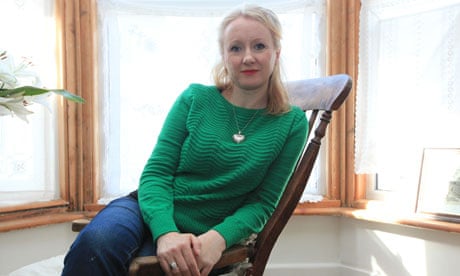
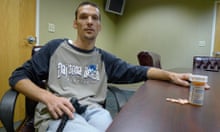
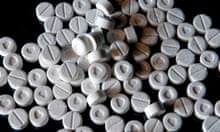
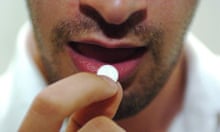
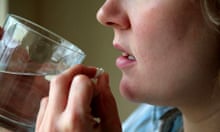
Comments (…)
Sign in or create your Guardian account to join the discussion